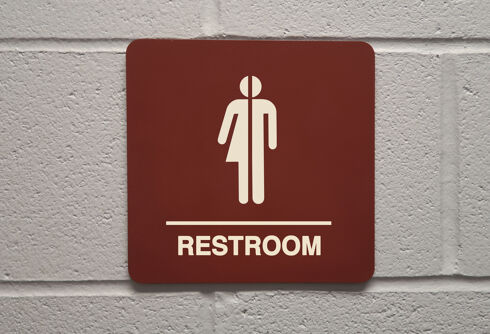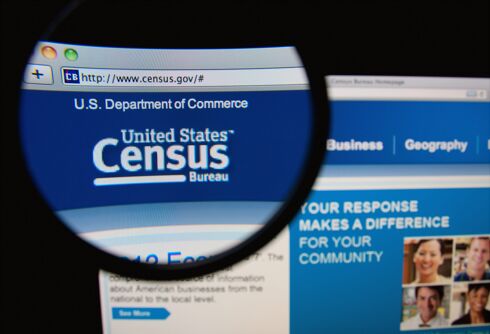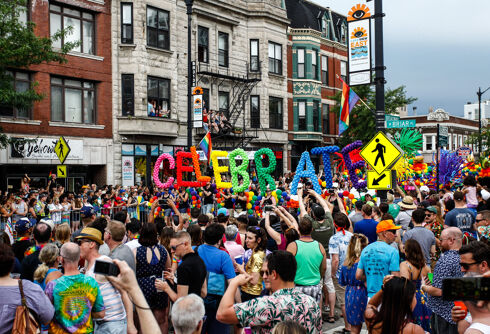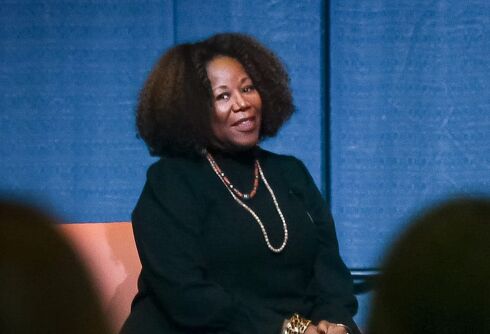

Of the five territories, only Puerto Rico has faced a lawsuit seeking the right for gay and lesbian couples to wed, and a federal judge there – bucking the trend in federal courts on the mainland – rejected the suit. That case is under appeal before the 1st U.S. Circuit Court of Appeals in Boston.
In the other four territories – the U.S. Virgin Islands, Guam, American Samoa and the Northern Marianas – no gay or lesbian couples have stepped forward to make a legal case for marriage rights, according to advocacy groups monitoring the situation.
The five territories would be covered by a possible U.S. Supreme Court ruling establishing a constitutional right for same-sex couples to wed, notes Omar Gonzalez-Pagan, an attorney with the national gay-rights group Lambda Legal. Several same-sex marriage cases from the mainland are before the high court this spring, and a ruling is expected by the end of June.
Gonzalez-Pagan said he hoped same-sex couples in the territories would step forward to seek marriage rights.
“No matter how big or small the population might be in any one of these territories, or the fact there’s vehement opposition in them, it doesn’t mean any citizens should be left behind,” he said. “All of them have a fundamental right to marry. They’re all entitled to equal protection.”
The only pending territorial lawsuit involving gay marriage was filed in Puerto Rico last year by five couples – two who are seeking to marry in Puerto Rico and three who live on the island and want recognition of marriages that occurred elsewhere.
In October, U.S. District Court Judge Juan Perez-Gimenez upheld Puerto Rico’s ban on same-sex marriage, saying voters and legislators, not judges, should decide the issue.
Lambda Legal is now appealing Perez-Gimenez’ ruling before the 1st Circuit.
Article continues below
Velez, a 50-year-old attorney and consultant, said she’s optimistic that the Supreme Court will rule in favor of same-sex marriage and thus nullify Puerto Rico’s ban. Meanwhile, she has been heartened by the support of family and friends as the lawsuit proceeds, “even from acquaintances who, due to religious reasons, might not be too happy about what we were doing.”
However, the leader of the conservative group Puerto Rico for Families, pastor and physician Cesar Vazquez, says his group will be dismayed if the Supreme Court decides to legalize same-sex marriage.
“It doesn’t mean we have to approve of it, and it doesn’t mean we can’t keep educating people,” said Vazquez.
In the other Caribbean territory – the U.S. Virgin Islands – there is strong opposition to same-sex marriage from leaders of various Christian denominations. A member of the territory’s Senate riled some of those leaders last year by drafting a bill that would have legalized gay marriage, but the bill has not advanced.
In the western Pacific territory of Guam, where more than 80 percent of the residents are Roman Catholic, the church helped defeat a bill to recognize same-sex unions in 2009. It was introduced by the vice speaker of the territorial legislature, Sen. Benjamin Cruz, who is openly gay.
Several gay couples have gone off-island to marry, but their unions are not recognized when they return to Guam even though they enjoy federal benefits.
Joseph Querimit, 32, and Simon-Joseph Querimit, 31, flew to Hawaii to marry in April 2014.
Joseph said he would have preferred to marry on Guam, “but I didn’t want to face all the ridicule.”
Article continues below
Christian churches with conservative social views predominate in American Samoa. Yet the territory also has a tradition of embracing its community of fa’afafine – males who are raised as females and adapt feminine traits.
Older members of the fa’afafine have cautioned against joining in same-sex marriage advocacy for fear of roiling the status quo, while some younger members have chosen differently.
Together, the five U.S. territories have almost 4 million residents – more than 3.5 million of them in Puerto Rico.
This material may not be published, broadcast, rewritten, or redistributed.













